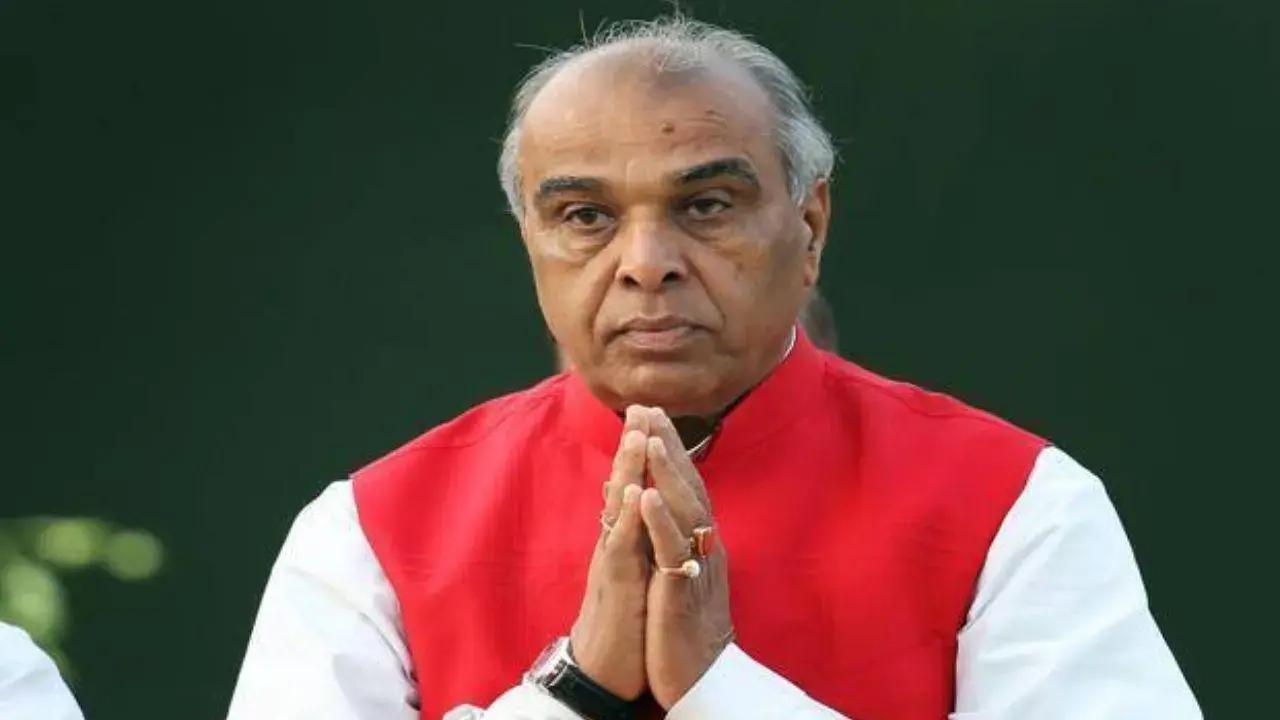BJP MP Jagdambika Pal defends the inclusion of non-Muslims in Waqf boards, citing past Supreme Court rulings that classify the Waqf Board as a statutory body, not a religious one. Pal also criticises violence in West Bengal and calls for President's rule

Pal criticised West Bengal CM over the violence in Murshidabad, claiming that the situation in the state resembled the turmoil of 1947, when people fled Pakistan. Jagdambika Pal/File Pic
BJP Member of Parliament Jagdambika Pal defended the inclusion of non-Muslims in the Central Waqf Council and various Waqf Boards following queries from the Supreme Court on the matter. Pal argued that the Waqf Board is a statutory and administrative body, rather than a religious one, and therefore, there is no constitutional barrier to including members from other communities.
In a conversation with ANI, Pal, who also served as the Chairman of the Joint Parliamentary Committee, explained that the Supreme Court had previously ruled that the Waqf Board is not a religious institution but a legal entity responsible for managing Waqf properties. Pal further emphasised that this was in line with earlier legal interpretations, including a decision where the court affirmed that the Waqf is an administrative body, not a religious one.
“It’s a valid question, but the Supreme Court has already addressed this in previous rulings. The Waqf Board is not a religious body; it’s a legal one, tasked with managing Waqf properties. Past decisions have clarified that Waqf is an administrative body. Thus, there is no issue with having both Muslim and non-Muslim members involved,” said Pal.
Pal also pointed to past verdicts from the Supreme Court that had allowed non-Muslims to be included in such boards, asserting that such inclusion does not interfere with religious matters.
In the same conversation, Pal criticised West Bengal Chief Minister Mamata Banerjee over the violence in Murshidabad, claiming that the situation in the state resembled the turmoil of 1947, when people fled Pakistan. “Today, people are fleeing their own state. This reflects the ultimate failure of the government. I believe that President’s rule should be imposed in Bengal,” he remarked.
As the Supreme Court continues its examination of the legalities surrounding non-Muslim membership in Waqf Boards, it referenced the Hindu Charitable Endowments Act as an example, where governance is restricted to Hindus. Justice Viswanathan pointed out that when it comes to Hindu endowments, only Hindus are allowed to govern them.
The court also raised concerns regarding the registration of Waqfs-by-user, questioning how such properties could be registered without proper documentation. Chief Justice of India (CJI) DY Chandrachud asked Solicitor General Tushar Mehta about the potential issues in registering Waqfs-by-user, suggesting that while there may be instances of misuse, there are also legitimate cases that would be adversely affected if changes are made.
(With inputs from ANI)
 Subscribe today by clicking the link and stay updated with the latest news!" Click here!
Subscribe today by clicking the link and stay updated with the latest news!" Click here!








